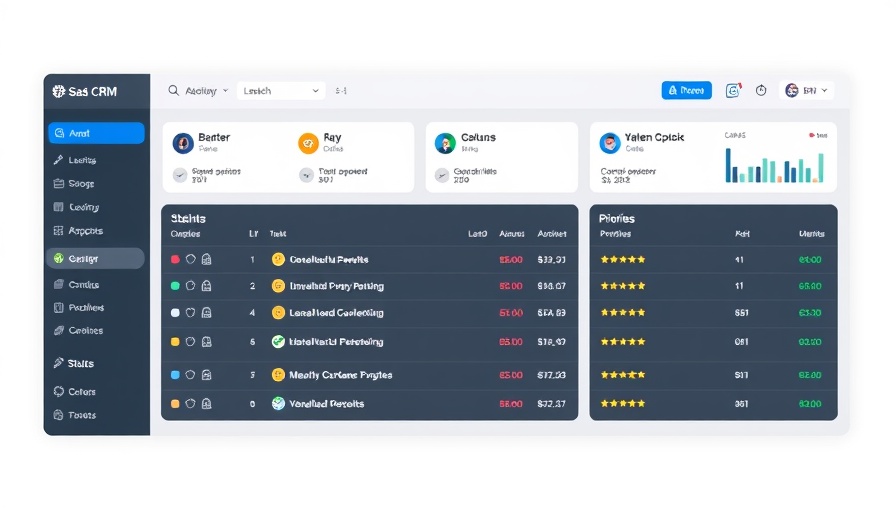
Shaping the Future of B2B Operations: Top CRM Software Solutions
In an era where businesses are rapidly evolving, choosing the right SaaS Customer Relationship Management (CRM) software has never been more critical for B2B teams, particularly for those looking to scale operations. As we step into 2025, several powerful CRM platforms stand out for their ability to streamline processes, enhance collaboration, and improve project management. Here, we highlight some of the best CRM software options that can transform your operational strategy.
Understanding the Value of CRM Software for Mid-Sized Teams
For business owners generating between $2M and $10M in annual revenue, the stakes are high when it comes to choosing software that aligns with their growth objectives. A well-implemented CRM system can support product development, enhance collaboration across teams, and create efficiencies in workflows that save time and resources. More importantly, it can offer insights that guide decision-making, facilitating funding opportunities and streamlined operations.
Top CRM Tools to Consider for Streamlining Workflows
With a myriad of options available, understanding which CRM can best serve your needs is essential. Here’s a consolidated list of the standout platforms for 2025:
- HubSpot - A comprehensive solution known for its user-friendly interface, great for marketing and sales integration.
- Salesforce - The industry leader, ideal for extensive customization and scalability as your business grows.
- Zoho CRM - Offers a balance of affordability and functionality, perfect for businesses looking to maximize ROI.
- Pipedrive - Great for sales teams focusing on activity-based selling, with an intuitive design.
- Freshsales - Provides excellent AI-driven insights and automation features for modern businesses.
Why Collaboration is Key in Choosing a CRM
Collaboration among team members is essential in optimizing any CRM deployment. By fostering an environment where team inputs are valued, businesses can ensure that operations align seamlessly with user needs. This may include feedback from sales, marketing, and customer service departments during the selection process to create frameworks that enhance productivity through effective workflows.
Choosing the Right CRM: What to Consider
- Integration Capabilities: Ensure the CRM integrates well with existing software tools and enhances overall product development processes.
- User Experience: The ease of use of the CRM will significantly impact adoption rates among team members.
- Customization: The ability to tailor the software to specific business needs can make a significant difference in operation efficiency.
Future Insights: The Direction of CRM Software in B2B
As technology continues to evolve, so will the functionalities of CRM tools. Trends indicate a shift towards AI integration, allowing for predictive analytics that can foresee customer behavior, thus enabling businesses to proactively meet client needs. This advancement not only aids in retention but can also significantly enhance revenue.
The Value of Action: Making Informed Decisions
Understanding the diverse options and capabilities available in CRM solutions can empower you to choose a program that truly meets the unique demands of your business. As mid-sized companies often navigate the complexities of scaling, selecting the right CRM can provide the structured approach needed to manage growth effectively. Don't shy away from leveraging demos and trials to get a feel for how software fits within your operational landscape.
For those in the $2M-$10M revenue bracket, investing in robust CRM software is not just an operational choice—it's a strategic move towards sustainable growth. Start exploring options today and aim for a seamless integration that elevates your business processes.
 Add Row
Add Row  Add
Add 



Write A Comment